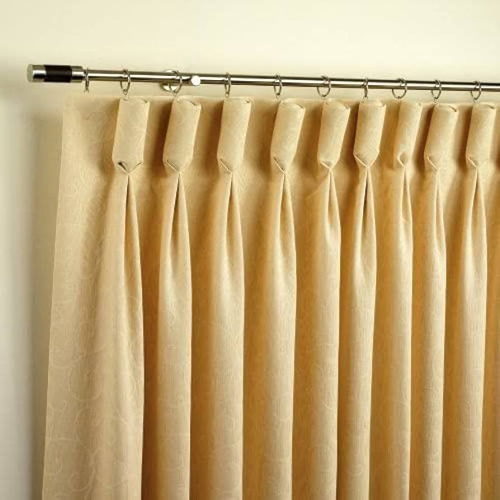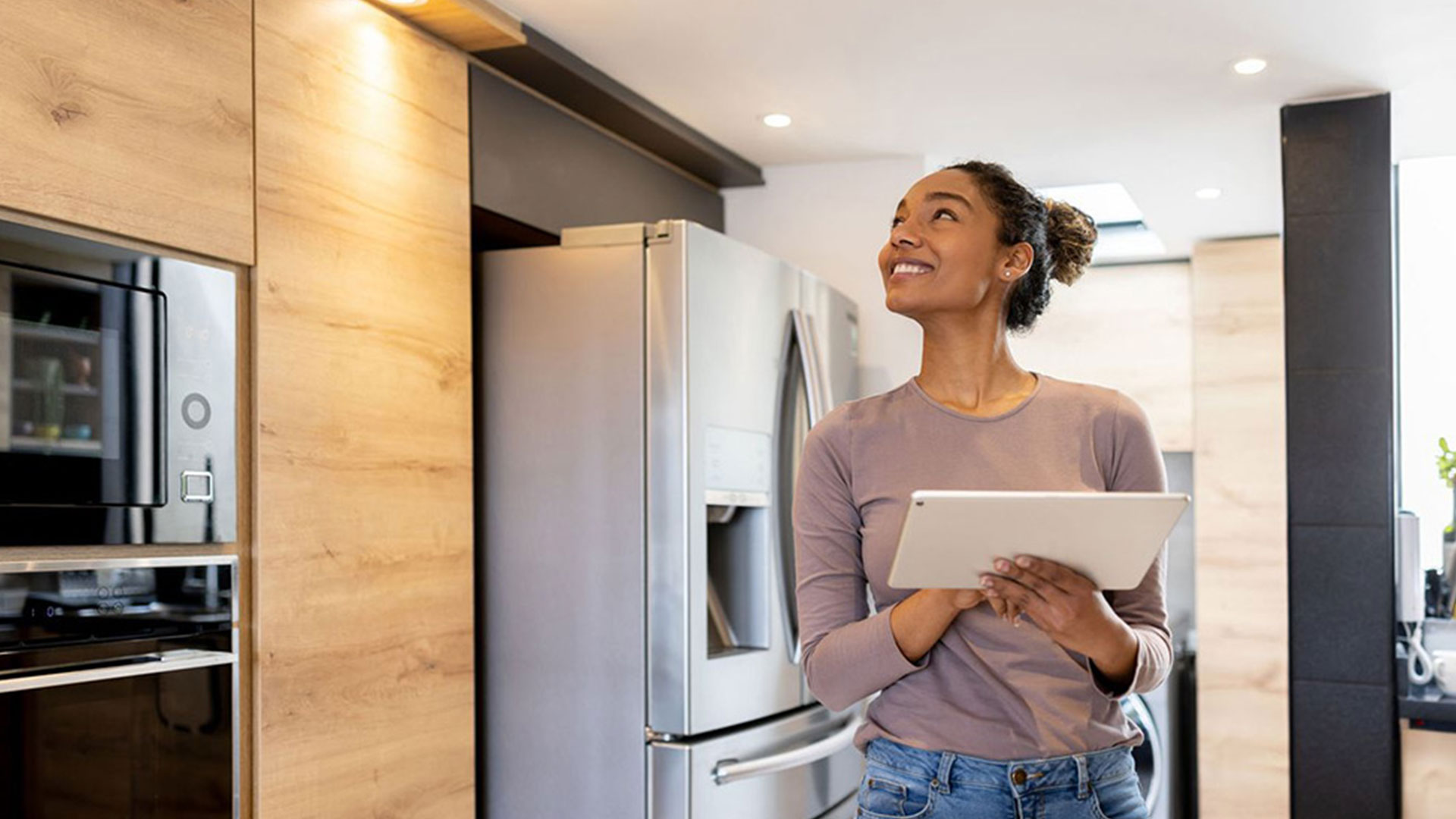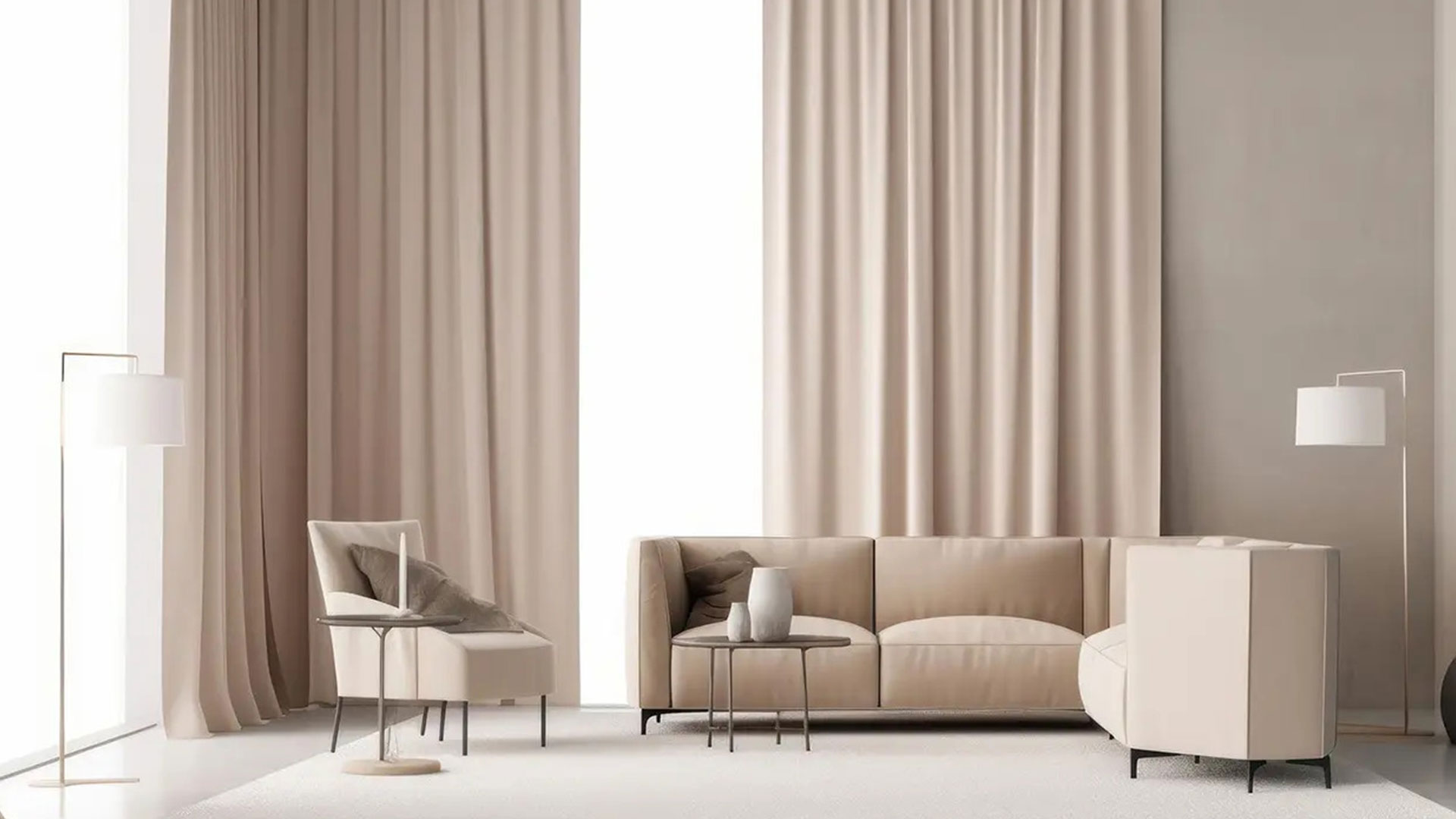This can be either 2 pinch or 3 pinch pleat. They create a neat and tailored appearance. 3 pinch pleat creates a more luxurious look and is highly recommended for Living rooms.
These are simple, evenly spaced pleats that create a gathered appearance. They are often used with curtain rings or hooks for easy hanging.
This modern style features evenly spaced, continuous pleats with a uniform and consistent appearance. Ripplefold curtains have a smooth and contemporary look.
These curtains have metal rings at the top through which the curtain rod is threaded. They create large, even folds and offer a modern and minimalistic look.

Myths on Home Automation
Warm Minimalism: Minimalism emphasizes on decluttering of spaces. Clutter-free and simplified living spaces never go out of style; they only get better and better. One of the most poised interior trends of 2024 is warm minimalism.The colour palette is typically neutral with a focus on warm tones. It perfectly balances simplicity, functionality, comfort, and style.
Biophilic design: Minimalism emphasizes on decluttering of spaces. Clutter-free and simplified living spaces never go out of style; they only get better and better. One of the most poised interior trends of 2024 is warm minimalism.The colour palette is typically neutral with a focus on warm tones. It perfectly balances simplicity, functionality, comfort, and style.
Myths on Home Automation
As home automation technology becomes more prevalent, there can be misconceptions or myths surrounding its capabilities and implications. Here are some common myths on home automation:
Home Automation is Expensive: While certain advanced home automation systems can be costly, there are also affordable options for basic automation needs. Many individual smart devices, like smart plugs or smart bulbs, are budget-friendly and can be a good starting point for those on a tighter budget.
Home Automation is Complicated to Install and Use: The installation of many smart devices is often straightforward, and manufacturers design them to be user-friendly. Many devices can be set up with simple plug-and-play mechanisms, and mobile apps provide intuitive interfaces for control.
Home Automation is Only for New Homes: Home automation can be integrated into both new and existing homes. Wireless technologies make it feasible to retrofit automation solutions into older homes without major renovations.
Smart Homes are Prone to Hacking: While any connected device has some level of security risk, reputable manufacturers implement security measures to protect smart home devices. Users can enhance security by regularly updating device firmware, using strong passwords, and securing their home networks.
Smart Homes Are Only for the Younger Generation: Smart home technology is designed for people of all ages. Many features, such as voice control and remote monitoring, can be particularly beneficial for older individuals or those with mobility challenges.
It’s essential for consumers to research and understand the capabilities and limitations of home automation to make informed decisions based on their needs and preferences.
Types of Curtain Pleats for Home
- 18 February 2024
Myths on Home Automation
As home automation technology becomes more prevalent, there can be misconceptions or myths surrounding its capabilities and implications. Here are some common myths on home automation:
Home Automation is Expensive: While certain advanced home automation systems can be costly, there are also affordable options for basic automation needs. Many individual smart devices, like smart plugs or smart bulbs, are budget-friendly and can be a good starting point for those on a tighter budget.
Home Automation is Complicated to Install and Use: The installation of many smart devices is often straightforward, and manufacturers design them to be user-friendly. Many devices can be set up with simple plug-and-play mechanisms, and mobile apps provide intuitive interfaces for control.
Home Automation is Only for New Homes: Home automation can be integrated into both new and existing homes. Wireless technologies make it feasible to retrofit automation solutions into older homes without major renovations.
Smart Homes are Prone to Hacking: While any connected device has some level of security risk, reputable manufacturers implement security measures to protect smart home devices. Users can enhance security by regularly updating device firmware, using strong passwords, and securing their home networks.
Smart Homes Are Only for the Younger Generation: Smart home technology is designed for people of all ages. Many features, such as voice control and remote monitoring, can be particularly beneficial for older individuals or those with mobility challenges.
It’s essential for consumers to research and understand the capabilities and limitations of home automation to make informed decisions based on their needs and preferences.








